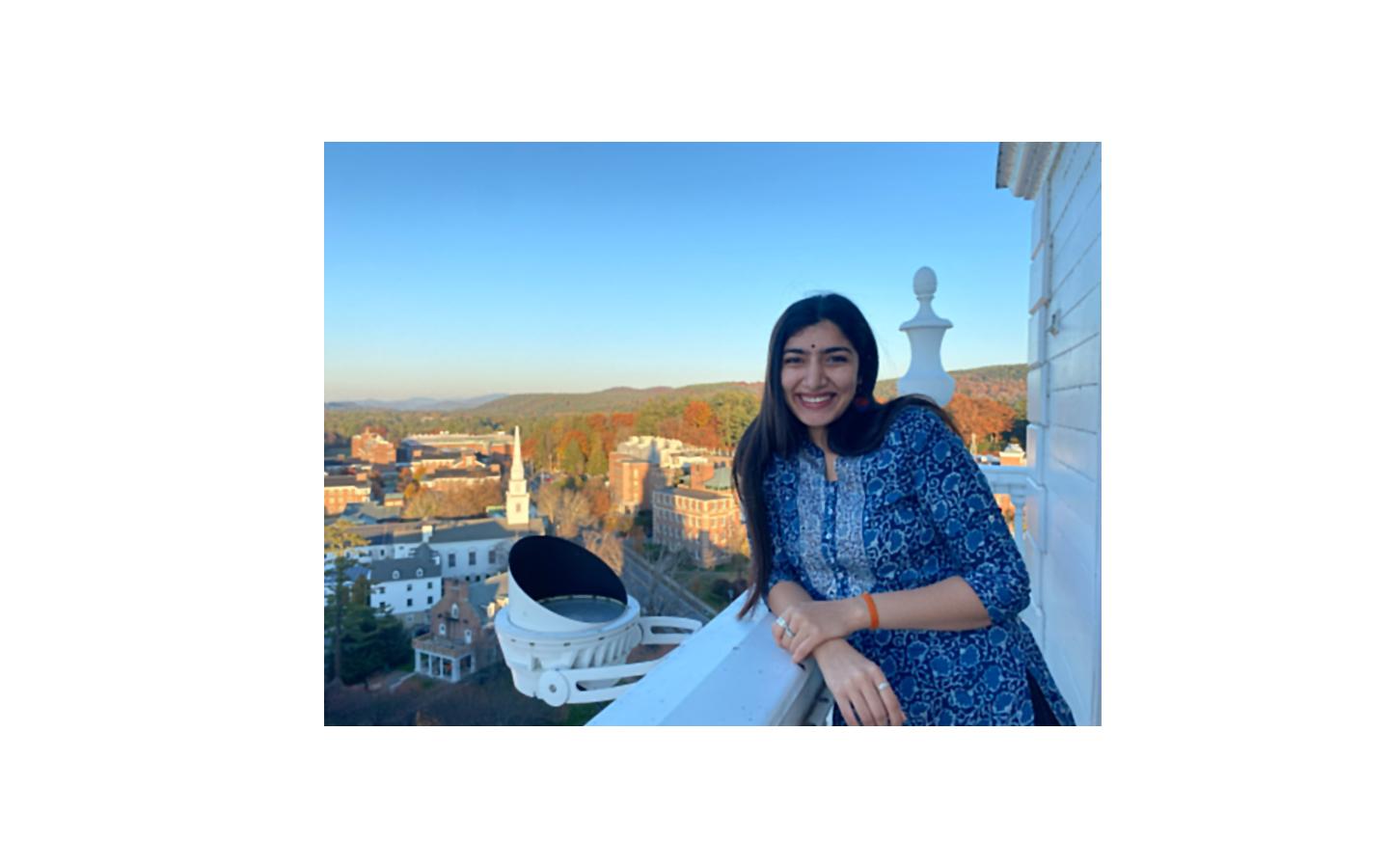From Statistics to Turtles: Carving a New Path
Nandini Prasad ’22 takes advantage of many Dartmouth opportunities for a career in statistics

Nandini Prasad shares her experiences at Dartmouth in environmental studies and statistics.
I am a Leadership Fellow at the Nelson A. Rockefeller Center for Public Policy and a Human Development Fellow and Global Health Fellow at the John Sloan Dickey Center for International Understanding. We explore frameworks for health equity, rights-based approaches to global health and poverty issues, and challenges in health security and health diplomacy.
“Probability and Statistical Inference,” a math course taught by Professor Yoonsang Lee, has had the greatest impact on me. This class was the pivotal point for me choosing to pursue statistics in graduate school. I learned a lot in Professor Lee’s class and became more confident in my abilities to pursue advanced studies in data science and statistics. His class provided me with a strong foundation in probability and statistics and inspired me to pursue these areas further.
Despite taking the class remotely at night from India, I found myself extremely engaged during the synchronous lectures, since Professor Lee connected the material to its real-world applications. I have only scratched the surface of all the possibilities offered by statistical and computational methods. I want to expand my competency in these methods for data analysis by going to graduate school for a master’s in statistics and eventually work in environmental conservation.
Having grown up in India—a developing megadiverse country with the world’s second-largest population—I have witnessed the rapid industrial progress accompanied by environmental degradation, rising income inequality, and loss of cultural heritage. The synergies and tradeoffs between conservation and development are a major issue of debate.
I was able to travel to Costa Rica on a biology foreign study abroad program, where I conducted a variety of research, helped sea turtles hatch, and went snorkeling off the Pacific and Caribbean coasts. With climate change, the accelerating deterioration of natural systems worldwide, and the destruction that follows, it has never been more important for scientists to understand organisms and ecosystems and how the organisms and systems respond to the threats they face.